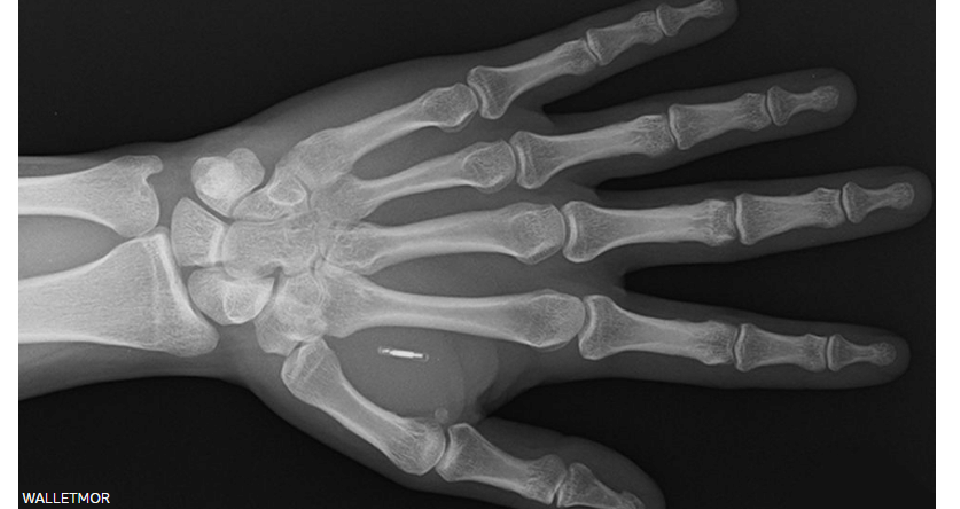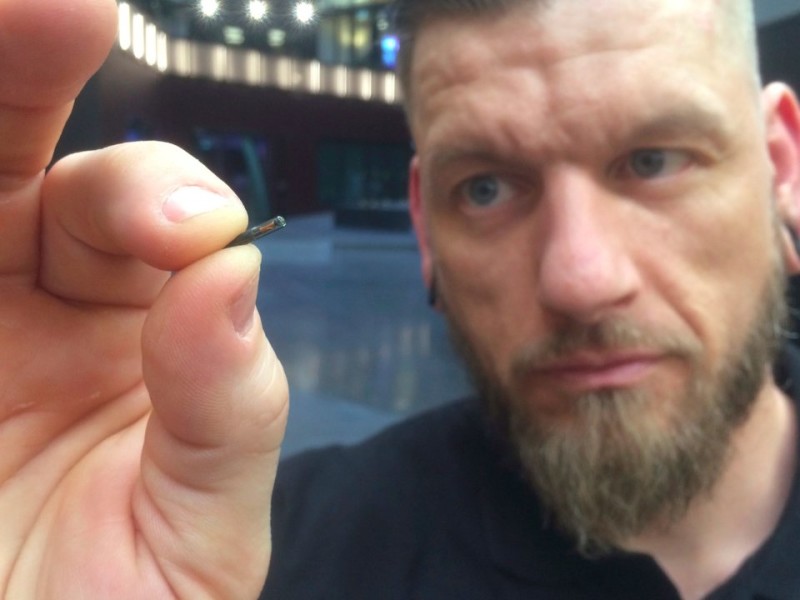Patrick Paumen is a Dutch security guard. The 37-year-old man does not need to use a bank card or mobile phone to pay. Instead, you simply place your left hand near the contactless card reader and the payment is made. You can pay manually because a contactless payment microchip was injected under your skin back in 2019. Now this is his wallet, the BBC wrote.
Microchips were first implanted in humans in 1998, but the technology has only become commercially available in the last decade. And when it comes to implantable payment chips, British-Polish company Walletmor claims they were the ones to offer these chips for sale last year.
"The implant can be used to pay for a drink on the beach in Rio, a coffee in New York, a haircut in Paris, or the local grocery store"
- said founder and managing director Wojtek Paprota. The chip is lighter than one gram and barely bigger than a grain of rice. It consists of a tiny microchip and an antenna wrapped in biopolymer, a material similar to plastic but of natural origin. It does not require a battery or other power source.

Photo: Walletmor
The technology used by Walletmor is the same as the contactless payment system of smartphones. A 2021 survey of more than 4,000 people in the UK and European Union found that 51 percent would consider getting the chip. However, without giving a percentage, the report added that "invasiveness and safety issues remain a major concern" for respondents.
Mr. Paumen is not worried about his whereabouts being tracked.
"RFID tags are also used on pets to identify them if they get lost"
- He told. The acronym (Radio Frequency Identification) stands for radio frequency identification.
Great, we might add. So there is a person who, as a thinking being, compares himself to wandering animals. It is worth taking a look back at the beginning of the COVID epidemic. Even then, the microchip appeared on the market immediately, which could also be implanted under the skin and which contained whether we were vaccinated or not.
It was probably from this news that the misconception that the COVID vaccine itself contained some sort of liquid microchip, which, while silly, also dissuaded many from taking the vaccine. However, it still had a reassuring element: it showed that some people take seriously the information branded as conspiracy theories by the "official media" and no longer believe everything without criticism.
a 2018 Dailymail article, 3-4,000 people in Sweden had already allowed themselves to be pinched.
"You are the future!"
- they persuaded people to use this technology with a slogan and justified it by saying that after that the "chipped people" no longer have to carry an ID card, a fitness pass, or even their workplace access card.
Microbiologist Ben Libberton told Euronews at the time: "the microchip is so popular among Swedes because it is a small country where most people sincerely trust each other and the authorities." Libberton also warns that with the microchip in our hands, we also make our data free prey.
“The biggest issue is data management and storage… if data is not stored securely, anyone can access it, and once the information is accessed, it is difficult to recover. Many people give out their data without even knowing it, even though they agreed when they signed the implantation papers."
Well, yes. With proper brainwashing and the further development of technology, we can very quickly get to the point where no one will be free with a microchip implanted in the hand or arm. Even with current facial recognition systems, they argue that it will be easier to track down and catch criminals; they said the same thing when they started filming the cities. Years ago, I read that in the wealthy principality of Monaco, no one can take a single step without some camera recording their movements.
Well, what will happen to the decisive - and non-criminal - majority of societies?
Perhaps we have already and increasingly been sacrificed to new and newer tools of surveillance and identification. In American crime novels, it happens when the victim throws away his cell phone so that they don't know where he is going. (The location of the switched-off mobile phone can also be identified.) But if we carry any device under our skin, how can we "turn it off"? If it is our "wallet" to which our salary can be uploaded, then obviously it can also be "sniffed" from there using the same technology.
Let's be alert! This is much more than a business. This trend is the greatest enemy of our existing identity and privacy.
Source: BBC/DailyMail
Featured image: James Brooks/AP / Jowan Osterlund Swedish 'body hacker' with a microchip.












